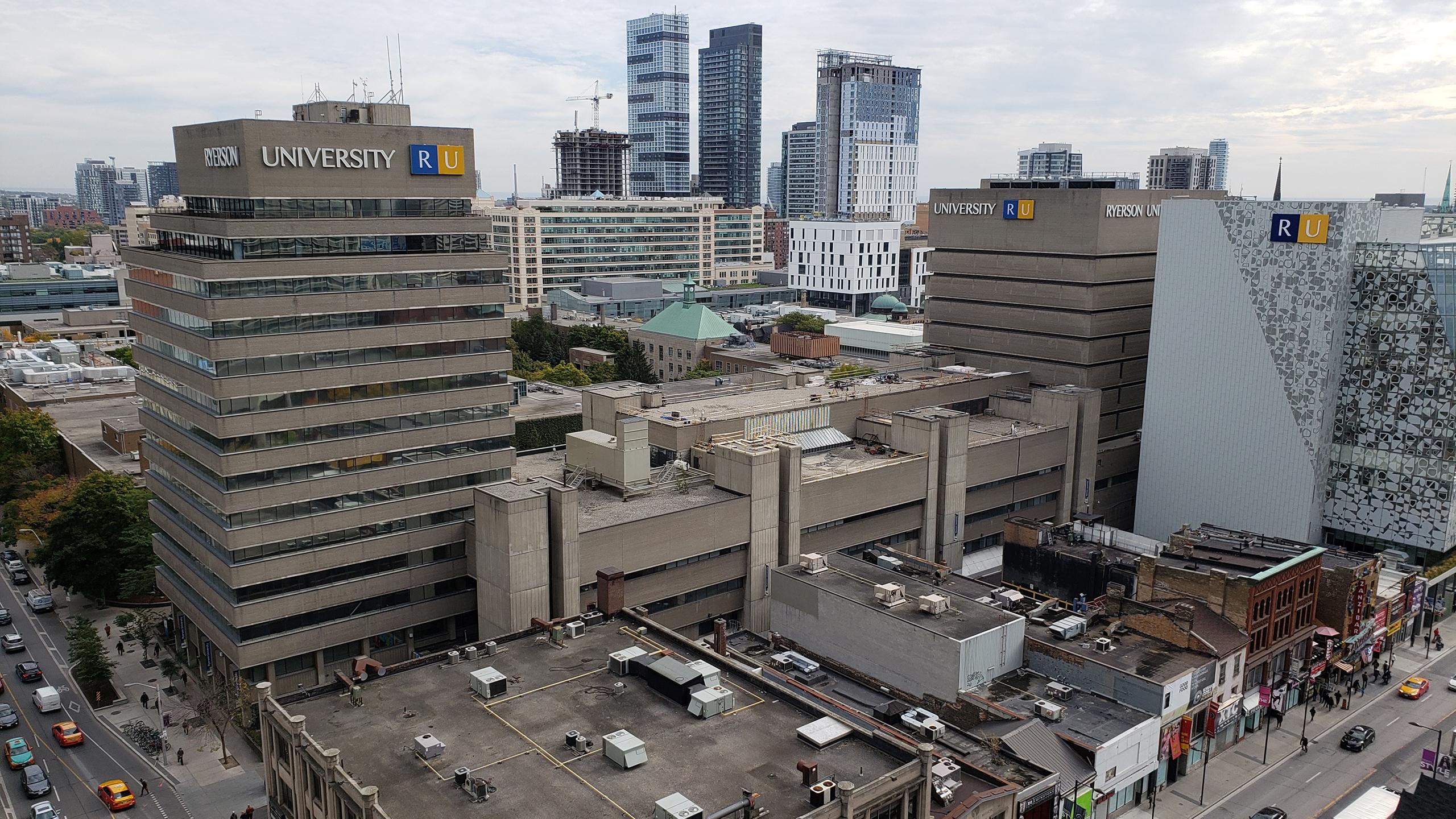By Manus Hopkins
A long commute can make opportunities at Ryerson less accessible—but for several students, living downtown can pose barriers of its own.
Challenges like learning to navigate transit and dealing with overcrowded streets are obvious issues, but students who came to Toronto from less populated towns around and outside of Ontario also encounter difficulties others may not think about.
For some students, moving away from their towns means moving away from everything that is familiar, and this can affect their support networks at home.
“It’s difficult to be away from my family because we have such a close relationship,” said Raven Cannon, a first-year psychology student. “Being in this city I feel pretty lonely and isolated since it’s hard for me to socialize with people, and I’ve always been used to being around my family.”
Cannon came to Toronto from the town of Seaforth, Ont., which had a population of 2,680 as of 2016. She said she was not very familiar with Toronto when she moved here.
Cannon said the unfamiliarity of people can be another big difference to get used to. For students who come from places where everyone knows each other, being surrounded by strangers all the time can be daunting.
“I struggle very largely with social anxiety and I find myself struggling with all the people on public transit and in restaurants and malls,” said Cannon.
For Cannon, overcoming the challenges of moving from a small, quiet town to a huge, busy city means using a new method of thinking and a different way of looking at city life.
“I’m overcoming my social anxiety day by day, getting used to the number of people,” she said. “It’s easy to see that more people mean fewer people are bound to see or notice you.”
Students: high food prices are an issue
When it comes to grocery shopping, prices in downtown Toronto are much higher than in smaller towns, and the lack of bulk stores like Costco makes food budgeting harder.
“One of the main challenges of finding healthy and affordable food is just that: I can’t find it,’’ said Jessie Fawcett, a second-year social work student. “It’s either I buy unhealthy cheap foods that last a while or buy expensive foods that will eat my entire month’s budget in one week.”
Fawcett said she has to shop at Loblaws, as it is the only grocery store close enough to where she lives.
“The pricing for that store is completely unreasonable and doesn’t give me the opportunity to meet my basic needs,” she said of Loblaws.
Fawcett is from Mattawa, Ont., which had a population of 1,786 as of 2016. During her first year at Ryerson, she lived on campus and said she is now spending much more on food than she was on the meal plan in residence.
“At least with a meal plan, that money is set aside specifically for food before the semester even begins,” Fawcett said. “However, residence food is absolutely disgusting and atrociously unhealthy and does not provide food for everyone with dietary restrictions, allergies and disorders.”
When necessities like food are hard to afford, Fawcett and other students find themselves having to give up money they would spend on other things to eat. “I definitely have to sacrifice spending money in order to get food,” said Fawcett. “Currently I only have $25 to last me until Christmas break in order to be able to pay rent.”
Fawcett is not the only student who finds herself having to be cautious when it comes to budgeting. Kelly Hume, a first-year professional communication student from Carlyle, Sask., also said keeping a close watch on his money is something he’s had to do.
“There’s definitely a higher cost of living here, so I’ve had to be more careful with how much stuff I actually need, versus what I want to buy,” said Hume, whose town of Carlyle had a population of 1,503 as of 2016.
Ryerson community members who struggle with food insecurity are able to access the Good Food Centre, located at 55 Gould Street. Among its services, The Good Food Centre provides emergency food relief for those in this position.
Living in downtown and facing the reality of adulthood is a shocking experience, but to Cannon, it gets better over time.
“Honestly, everything is coming to me with time,” she said. “It gets easier every day to live in the city.”












Leave a Reply